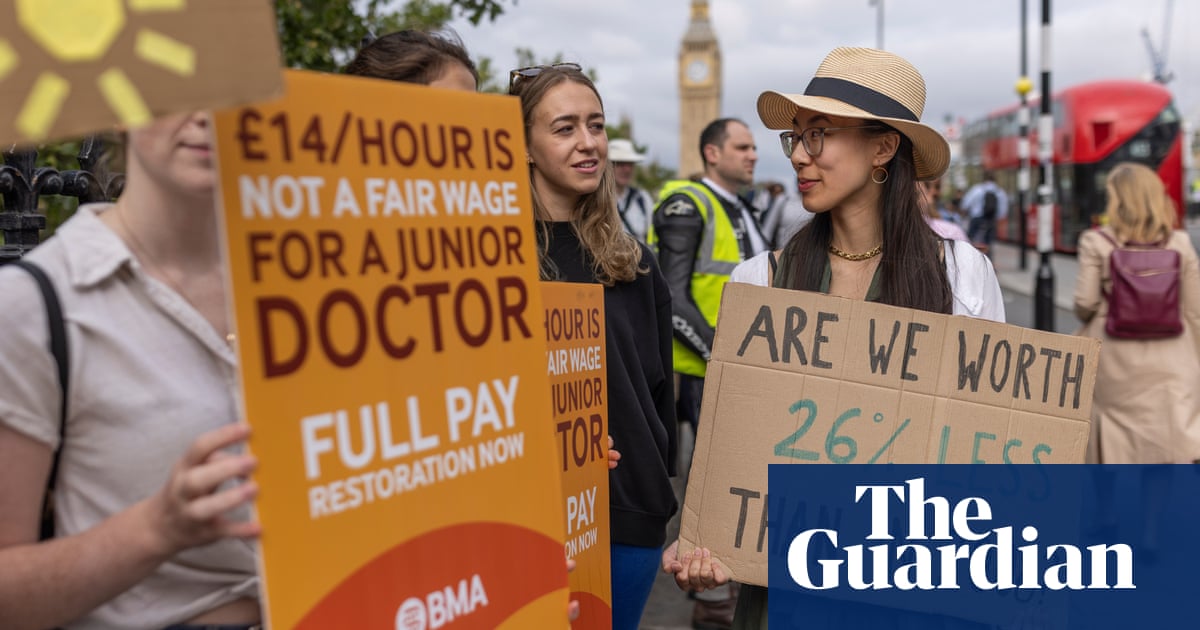
Unions have warned of a “hammer blow to morale” across the public sector after Downing Street said ministers would have to take into account the risk of stoking inflation when deciding this year’s pay awards.
A readout of Tuesday morning’s cabinet meeting revealed that ministers “held a discussion on public sector pay”, which would affect government officials, nurses, police, teachers and NHS workers struggling during the cost of living crisis.
It came as the Department for Environment, Food and Rural Affairs (Defra) became the first Whitehall department to announce a recruitment freeze, with the threat of more than 90,000 job cuts looming across the public sector.
According to Boris Johnson’s official spokesperson, at the cabinet meeting “the prime minister said the public are understandably anxious about global cost of living pressures, and that the government will continue to support those most in need”.
The spokesperson added: “The government has already pledged to increase public sector spending and is awaiting decisions by public sector review bodies. However, ministers made clear that the risk of triggering higher inflation must be part of considerations when deciding pay awards this year.”
Trade unions reacted angrily to the suggestion public sector workers should bear the responsibility for restraining inflation.
The TUC deputy general secretary, Paul Nowak, said: “These claims are nonsense. Making sure people can afford to pay their bills and put food on the table is not going to push up inflation. Inflation is being driven by rising energy costs, not pay demands.”
He added: “Key workers in the public sector have endured a decade of wage cuts and freezes. At a time when staff shortages are crippling frontline services this would be a hammer blow to workers’ morale.”
A cap on public sector pay awards, imposed by the chancellor, Rishi Sunak, during the pandemic, was only lifted last October, with effect from April.
The main civil service union, the Public and Commercial Services (PCS) union, on Tuesday backed strike action over the government’s plans to peg pay rises at only 2%. The vote, which took place at the union’s annual conference in Brighton, demonstrates the scale of anger in Whitehall and beyond at the government’s offer.
The PCS general secretary, Mark Serwotka, said that throughout the pandemic officials had “worked hard providing critical frontline services”. He added: “Unlike the prime minister, we weren’t being distracted by cheese. We kept the country running, providing universal credit to almost 10 million people, furlough to almost 6 million people, keeping our borders open, keeping the roads safe.”
The row over pay restraint came as it emerged that Defra had frozen recruitment, initially for several months. An “official sensitive” briefing leaked to the Guardian revealed an effective recruitment freeze for all but essential roles in the department would come into effect on Wednesday.
Senior officials who drew up the document admitted redundancies may be used “as a last resort”. They added: “Given what we will need to do over the coming years, we need to recognise that after this three-month period, our approach to recruitment won’t return to how it was.”
Only certain roles approved by the department’s director general or chief executive in its arm’s-length bodies will be allowed to be filled. And appointments made through career entry schemes including apprenticeships and skills support for care leavers will only be permitted for “critical” jobs.
Garry Graham, the deputy general secretary of the union Prospect, said it was “the first of many damaging recruitment freezes across the civil service” and that Defra was already struggling to fulfil its obligations to tackle climate breakdown, and support farmers and boost trade after Brexit.
He warned that officials would face “higher workloads and more pressure” and called on Johnson to “rethink these disastrous plans and properly resource our essential public services”. Defra was contacted for comment.
A government spokesperson said they were “incredibly grateful to the civil service for the outstanding job they do in delivering for the public”, but that given the cost of living crisis, “the public rightly expect their government to lead by example and to run as efficiently as possible”.
Ministers have been asked to model job cuts of up to 40% in their departments as part of a cost-cutting drive being spearheaded by Jacob Rees-Mogg, the minister for Brexit opportunities and government efficiency.
When Johnson’s spokesperson was asked whether public sector workers would have to accept below-inflation pay increases in the coming months, he said: “Obviously, I can’t predict exactly where inflation will go. But with inflation running so high, it does present a significant challenge to things like public sector pay.”
Independent pay review bodies make recommendations to ministers about how workers in various parts of the public sector, including the NHS and teaching, should be rewarded.
The Department of Health and Social Care gave evidence to the NHS pay review body earlier this year, suggesting a 3% rise for nurses. With inflation running at 9%, that would represent a significant real-terms cut.












